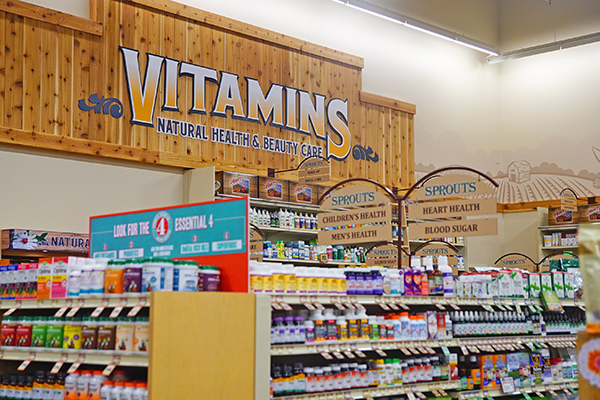0 Vitamins and Minerals: Are You Getting What You Need From Them?
- Vitamins
- Author Rob Harris
- 03-24-2022
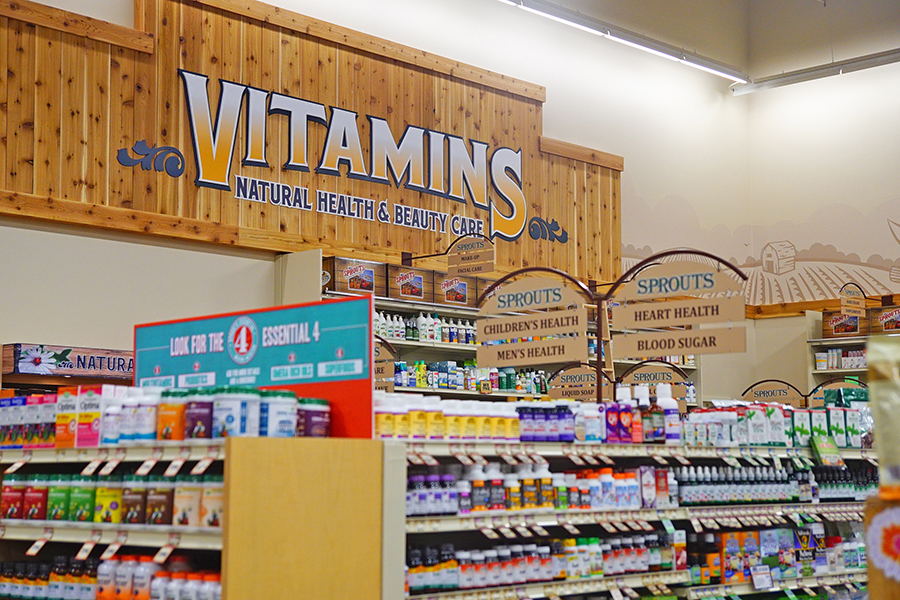

Vitamins
According to the Google Dictionary vitamins are defined as: 'Any of a group of organic compounds which are essential for normal growth and nutrition and are required in small quantities in the diet because they cannot be synthesized by the body.'
North American: 'A pill containing a specified amount of a particular vitamin or vitamins, taken as a dietary supplement.'
'Most people can get all the vitamins they need from a healthy diet.'
Minerals
Google defines minerals as: 'A naturally occurring inorganic solid, with a definite chemical composition, and an ordered atomic arrangement not made by humans.'
This explains what vitamins and minerals are, and that it is necessary to get them from outside sources because our bodies are not capable of making them internally for ourselves. What it doesn't cover is the controversy surrounding vitamins and minerals taken as dietary supplements.
Since the early 20th-century man has been producing and selling vitamins and minerals in the form of an elixir or pill that can be easily taken at any time of the day or night. Lately, there has been some pushback as to the validity of vitamin supplements. One of the more recent articles comes from Yahoo and claims that a new report shows supplements as having no added health benefits:
~~~~~~~~~
Are vitamins a waste of money? A new study says yes - Yahoo
Vitamins, supplements have no added health benefits, the study contends. A new report says taking supplements could be a waste of money and may even be harmful to your health. ... In fact, nearly 70 percent of people take supplements, according to the industry trade association, the Council for Responsible Nutrition.
~~~~~~~~~
Real or Placebo
Manufactured supplements is a 35 billion dollar a year industry and a lot of people are making a fortune from selling them. The question is, if nearly 70 percent of people take them, can they all be that gullible?
Some people buy them, take the entire contents of the bottle and swear they've felt no change and conclude that it was a waste of money. Others can take the same supplement and swear they feel much better and conclude that it has to have been the supplements. Can this really be the placebo effect and only the true believers feel a difference?
There are many factors to consider when trying to answer this question. Was the supplement made by the same manufacturer, were the ingredients sourced from a natural organic process or created in a lab, how fresh were the contents of each bottle (had one been sitting on a store shelf for a long time), etc? These are all valid concerns that still don't answer the question; do vitamins really work or are they simply a placebo?
The Need Is Real
While the jury is still out on the question of whether supplements are effective or just a waste of money and resources, the fact that our bodies need vitamins and minerals is not in question.
In the past our only source of getting the resources the body needed was through the foods we ate. Unfortunately with all the processed foods we consume today, that is no longer the case. Busy schedules, convenience, and price are all contributing factors to why we choose the foods we eat, but in the end, the result is vitamin deficiency.
Finding the Right Source

There are many ways of getting the nutrient-rich foods we need, but all too often they are out of reach for the average consumer. Most grocery stores offer an organic option but these options are usually priced beyond what many families can afford. On the extreme side, some have resorted to growing their own vegetables and raising livestock for their family. Some have even been successful enough to sell the excess but for most of us that is not practical, or possible, considering we don't all live on farms.
So how do we get around this obstacle and still be able to get all the nutrients we need? Some say the government should subsidize the organic growers like they have other farmers, but how sustainable can that be long-term? Others think there should be price controls placed on the growers and they should be forced to sell their products at a price everyone can afford. Not only is that not fair, but how long do you think these growers could stay in business if they can't charge enough to cover their operating costs?
Until man can come up with a food source that supplies all the nutrients we need, at a price everyone can afford, and tastes good; supplements may be our only option.
Supplements Vs. Food
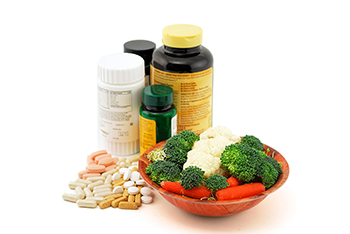
The thing to remember here is that a supplement is not to be confused with a replacement. A supplement is defined as 'something that completes or enhances something else when added to it.' No one ever said you should replace the foods you eat with a pill, but using them to supplement a lack of nutrients is not a bad thing.
Before you run out and grab any bottle of vitamins you see on the shelf, do your homework and find the right supplement for you. If, for example, you know you drink plenty of milk on a regular basis, you probably won't need to add vitamin D, A, B1, B12, calcium, magnesium, potassium, or zinc to your list of supplements.
Consider the foods you consume regularly and the nutritional values they provide before you add a supplement to your diet. The following is a list of the most common vitamins and minerals, along with the foods you may already be eating that will provide most, if not all of them.
~~~~~~~~~
The following information was sourced from Med Line Plus. Page last updated: 12 January 2022.
Vitamin A: Dark-colored fruits, Dark leafy vegetables, Egg yolk, Fortified milk and dairy products (cheese, yogurt, butter, and cream), Liver, beef, and fish.
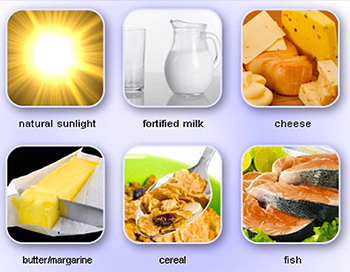
Vitamin D: Fish (fatty fish such as salmon, mackerel, herring, and orange roughy), Fish liver oils (cod liver oil), Fortified cereals, Fortified milk and dairy products (cheese, yogurt, butter, and cream).
Additional sources include: egg yolks, direct sunlight on our skin, canned light tuna, orange juice, and mushrooms produce vitamin D2 which helps raise blood levels of vitamin D.
Vitamin E: Avocado, Dark green vegetables (spinach, broccoli, asparagus, and turnip greens), Margarine (made from safflower, corn, and sunflower oil), Oils (safflower, corn, and sunflower), Papaya and mango, Seeds and nuts, Wheat germ and wheat germ oil.
Vitamin K: Cabbage, Cauliflower, Cereals, Dark green vegetables (broccoli, Brussels sprouts, and asparagus), Dark leafy vegetables (spinach, kale, collards, and turnip greens), Fish, liver, beef, and eggs.
WATER-SOLUBLE VITAMINS
Biotin: Chocolate, Cereal, Egg yolk, Legumes, Milk, Nuts, Organ meats (liver, kidney), Pork, Yeast.
Folate: Asparagus and broccoli, Beets, Brewer's yeast, Dried beans (cooked pinto, navy, kidney, and lima), Fortified cereals, Green, leafy vegetables (spinach and romaine lettuce), Lentils, Oranges and orange juice, Peanut butter, Wheat germ.
Niacin (vitamin B3): Avocado, Eggs, Enriched breads and fortified cereals, Fish (tuna and salt-water fish), Lean meats, Legumes, Nuts, Potato, Poultry.
Pantothenic acid: Avocado, Broccoli, kale, and other vegetables in the cabbage family, Eggs, Legumes and lentils, Milk, Mushroom, Organ meats, Poultry, White, and sweet potatoes, Whole-grain cereals.
Thiamine (vitamin B1): Dried milk, Egg, Enriched bread and flour, Lean meats, Legumes (dried beans), Nuts and seeds, Organ meats, Peas, Whole grains.
Pyridoxine (vitamin B6): Avocado, Banana, Legumes (dried beans), Meat, Nuts, Poultry, and Whole grains (milling and processing remove a lot of this vitamin).
Vitamin B12: Meat, Eggs, Fortified foods such as soymilk, Milk and milk products, Organ meats (liver and kidney), Poultry, Shellfish. NOTE: Animal sources of vitamin B12 are absorbed much better by the body than plant sources.
Vitamin C (ascorbic acid): Broccoli, Brussels sprouts, Cabbage, Cauliflower, Citrus fruits, Potatoes, Spinach, Strawberries, Tomatoes and tomato juice.
FAT-SOLUBLE VITAMINS
Vitamins A, D, E, and K, topping the list above, are vitamins that can build up in the body and if taken in excess, can be dangerous. Unlike water-soluble vitamins that the excess gets passed through the body in urine, these are vitamins that the body absorbs. It is important that you maintain the proper levels of these vitamins because too little can be almost as harmful as too much.
Side Effects
Many people think that if some is good, a lot is better. This is not always the case. High doses of certain vitamins can be toxic. Ask your healthcare provider what is best for you.
Recommendations
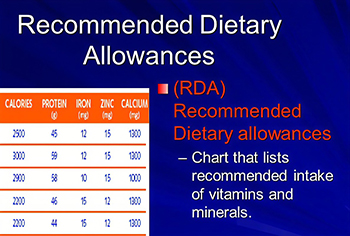
The Recommended Dietary Allowances (RDAs) for vitamins reflect how much of each vitamin most people should get each day.
- The RDA for vitamins may be used as a goal for each person.
- How much of each vitamin you need depends on your age and sex.
- Other factors, such as pregnancy and your health conditions, are also important.
If you take supplements, do not take more than 100% of the RDA unless you are under a provider's supervision. There are many over-the-counter options that you can use to test your vitamin levels. Of course the best method of finding out what deficiencies you may have is through a blood test performed by your healthcare provider. Regardless of how you test be sure you don't exceed the RDA recommendations.
The best way to get all the daily vitamins you need is to eat a balanced diet that contains a wide variety of fruits, vegetables, fortified dairy foods, legumes (dried beans), lentils, and whole grains.
Dietary supplements are another way to get the vitamins you need if the food you eat is not supplying enough vitamins. Supplements can be helpful during pregnancy and for special medical problems but always consult your doctor before starting or stopping the use of supplements.
The above information was sourced from Med Line Plus. Page last updated: 12 January 2022.
~~~~~~~~~
Vitamin and mineral supplements are manufactured by companies that are selling them because of the money they can make. Some companies maximize their profits by using cheap ingredients while others truly care about the quality of the contents of their products. Remember the old saying; 'you get what you pay for!' Not all products are created equal and you should do your own research to determine what is best for you, or if you even need them.
Most of us will find some deficiency in our Vitamin and mineral intake and consider supplements as a way of correcting the problem. Make sure you find the right product for you by first knowing exactly which vitamins you are missing in your diet. Then find a company that cares enough to use only the best quality ingredients and don't worry about the price. After all, you're taking these because you care about your body and what you put in it, right? This is the only body you have and you can't get another one; doesn't it deserve the best?
A special thank you to Rob Harris for contributing this article.
Content Marketing Offers the Highest Return On Investment
Online, or content marketing and advertising, is currently the second-highest method of promoting businesses following only Television which, for now, remains in the number one position. Experts have predicted that digital ads will surpass TV by 2025 and not look back. For cost-effectiveness, and the ability to directly target your audience, nothing matches the ROI of digital marketing. Learn More
Digital Marketing Offers Three Opportunities To Reach Your Audience
Studies show that the majority of people will use their phones to search for content that addresses their current needs and then switch to their computer for more in-depth research before making final decisions or purchases. With three different platforms, computers, tablets, and phones, it is important to make sure your audience can follow your content and ads on any device. The upside to this is you have three opportunities to reach them. All of our Websites are developed to work flawlessly on all three platforms. Learn More





